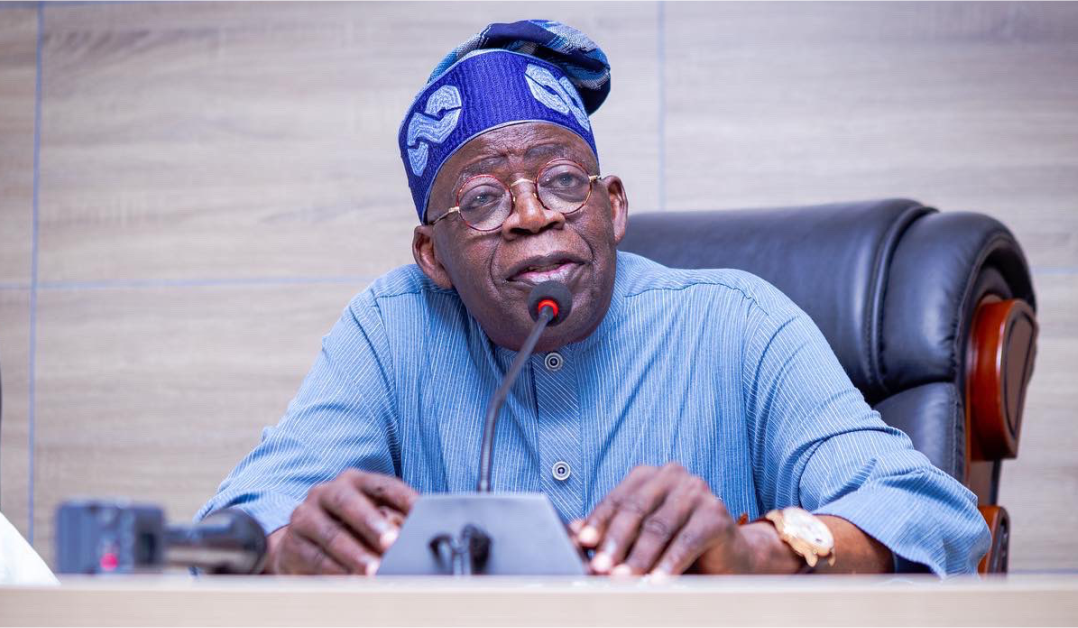INTERNATIONAL

COURT ORDERS RELEASE OF FBI, DEA FILES ON PRESIDENT TINUBU’S ALLEGED DRUG LINKS
Multiple U.S. government agencies, including the Federal Bureau of Investigation (FBI) and the Drug Enforcement Administration (DEA), are scheduled to release investigation records on Friday, May 2, 2025, concerning an alleged drug trafficking case from the 1990s involving Nigerian President Bola Ahmed Tinubu. The release follows a court order by Judge Beryl Howell of the U.S. District Court in Columbia, issued on April 8, 2025.
Origin of the FOIA Request
The impending release stems from Freedom of Information Act (FOIA) requests filed by American legal transparency advocate Aaron Greenspan, founder of PlainSite. Between 2022 and 2023, Greenspan submitted 12 FOIA requests seeking information about a suspected Chicago drug ring that operated in the early 1990s. The individuals named in the request include President Bola Tinubu, Lee Andrew Edwards, Mueez Abegboyega Akande, and Abiodun Agbele.
Initially, both the FBI and DEA issued what is known as “Glomar responses”—refusals to confirm or deny the existence of such records. However, Judge Howell ruled these responses invalid, stating that withholding the documents was “neither logical nor plausible.”
Court Ruling and Agencies Involved
In her ruling, Judge Howell stated that the public interest in the release of the documents far outweighed any potential privacy concerns. She wrote:
“The FBI and DEA have both officially confirmed investigations of Tinubu relating to the drug trafficking ring. Any privacy interests implicated by the FOIA requests... are overcome by the public interest in release of such information.”
The judge further noted that the agencies failed to prove that any real privacy interests were at stake and therefore must comply with the FOIA requests. Other agencies expected to release documents include the U.S. Attorneys’ Office, Department of State, Internal Revenue Service (IRS), and the Central Intelligence Agency (CIA), although the CIA is exempt from the May 2 release deadline.
Response from the Nigerian Presidency
Reacting to the court’s decision, the Nigerian presidency has dismissed the ruling, stating that it simply revives information already in the public domain.
Bayo Onanuga, Special Adviser on Information and Strategy to President Tinubu, said:
“There is nothing new to be revealed. The report by Agent Moss of the FBI and the DEA has been in the public space for more than 30 years. The reports did not indict the Nigerian leader.”
Possible Political Implications
While the presidency insists the documents contain no new revelations, the upcoming release is generating widespread interest, particularly in Nigeria. With President Tinubu currently in office, any new findings or confirmations of past investigations could have political, legal, and reputational consequences.
The situation also highlights the ongoing debate over government transparency versus personal privacy. The ruling reinforces the idea that public officials—especially heads of state—are subject to higher standards of scrutiny.
As May 2 approaches, attention will be focused on the nature of the documents and how their release could shape public discourse and political developments in Nigeria.
"This represents a significant development in our ongoing coverage of current events."— Editorial Board









